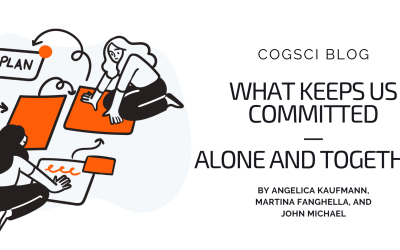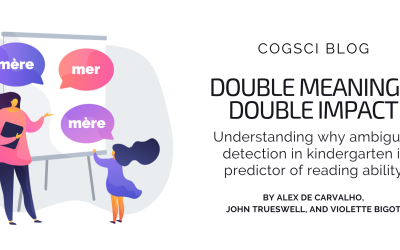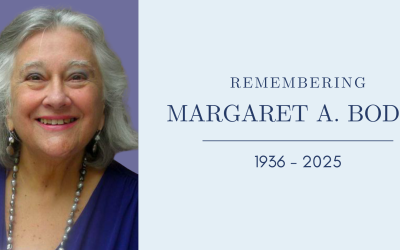By Melissa Troyer
Sketch by Natalia Vélez
2020 is a year of the (perhaps shouldn’t-have-been-so-) unexpected. The Big Topics are on the table.
A global pandemic; civil unrest; a call to action against white supremacy and the structural racism built into the core of society as we know it. Just recently, the #metoo movement yielded a similar call to action for the end of societally entrenched sexism and misogyny. Within the academic fields of cognitive science, neuroscience, and beyond, many spoke out against abuses of power within the systems close to home for many cognitive scientists. These calls for action are by no means new but provide a renewed invitation to critically inspect and reflect on social justice practices in our own spheres. What can we do to make academia a healthy and safe place for everyone?
At a lab meeting, we discussed an article about bias in hiring practices showing that one single word on a CV – a person’s first name – can negatively impact how professors rate potential job candidates based on assumptions about race and gender. Large-scale events like #ShutDownStem have inspired colleges and universities to host events advocating for anti-racism awareness and action. A program at my current university asked its members to attend a training workshop on building equity, diversity, and inclusivity practices into work from the ground up – including discussions of traumatic triggers, privilege, and power. Amidst the pandemic and increasing necessity of social isolation, discussions of protecting mental health have been on the rise. These are all positive steps, but they are not enough.
2020 has perhaps provided many of us with more time to reflect on how to actually make the changes that would be needed for a more just society – and a kinder one. This time has me doing a lot of reflecting on the changes it would take to make academia a more socially just place. The global pandemic has highlighted existing inequities in many ways, with disparities in financial resources among the most significant. Moreover, research suggests that graduate students (and, likely, more senior researchers too) suffer mental health problems at a rate up to 6 times higher than the general population, and this is particularly true for individuals who do not identify as cisgender men. How can we change the academic culture to promote mental and physical well-being amongst all students?
I recently attended an insightful workshop on Leadership in Wellness, including discussions of mental health as a part of well-being that takes ongoing, adaptive practice to achieve and maintain. What if we could all adapt to a new way of doing science in which individual wellness was prioritized? One promising tool recently piloted at a large Canadian research institute implemented a peer coaching framework, where graduate students were trained in mentorship and motivational interviewing. This intervention was designed in part to help students increase resilience–the ability to cope well with life’s challenges and stressors. After 8 months, these students exhibited decreased levels of stress and anxiety and increased mental health overall.
Many universities have centers for teaching and learning to support both students and educators. During my PhD, I felt personally supported by the Engaged Teaching Hub, which provided resources (ranging from informal consultations to formal training in pedagogy) for graduate student, postdoc, and faculty educators. A core theme was the importance of building inclusive, positive classroom cultures and establishing an environment of trust. As one small example of making a classroom more inclusive, I learned that as an instructor, soliciting anonymous feedback can be a great way to include students who may not feel comfortable speaking up in class. An inclusive, student-centered approach can likely benefit research spaces, as well.
Another main focus in pedagogy is that learning benefits from having a growth mindset, in which desirable difficulties are invited, and struggling is considered a normal part of learning. This approach is reminiscent of George Lakoff’s cognitive frames for power structures–the “nurturing parent” (rather than “stern father”) metaphor for figures of authority (see discussion in terms of the 2016 United States political election here). This approach requires a good deal of vulnerability and trust by all parties.
Cultivating feelings of trust and belonging in classrooms, research labs, or any work environment, for that matter, is not an easy feat. Like all workplaces, research environments are not only spaces in which we do our work but also where we can affirm our values. However, individuals may not always be aware of gaps between attested values (including values at the level of the organization/university) and actual behaviors. For example, as educators, we might value promoting an inclusive workplace but lack the education to do so. 2020 provides a moment to pause and consider what interventions could be put in place to address this.
Some academics suggest that the global pandemic may lead to a bleak picture for diverse representation in the academy. I have been reflecting on what cognitive scientists can learn from the world in 2020 to combat this. Can we update our cognitive frames to be more nurturing and empathetic to one another? Can we practice “call-in” culture? (As activist Loretta Ross writes, “Calling-in is simply a call-out done with love.”) Can we struggle with ideas we don’t quite understand, accept our insecurities, learn from failure?
There is no quick fix to these big-picture questions, and the process of change is likely to be long and difficult. It can be made easier if there are enough educators and researchers working together to change the culture, even in small ways. For one, we can re-evaluate goals within science, including a consideration of “slow science,” a model which prioritizes careful scientific process over publishing outcomes. Perhaps most importantly, we can prioritize educating ourselves, our peers, and anyone in our circles of influence on how to build a culture that prioritizes well-being for every individual.



